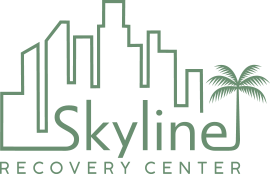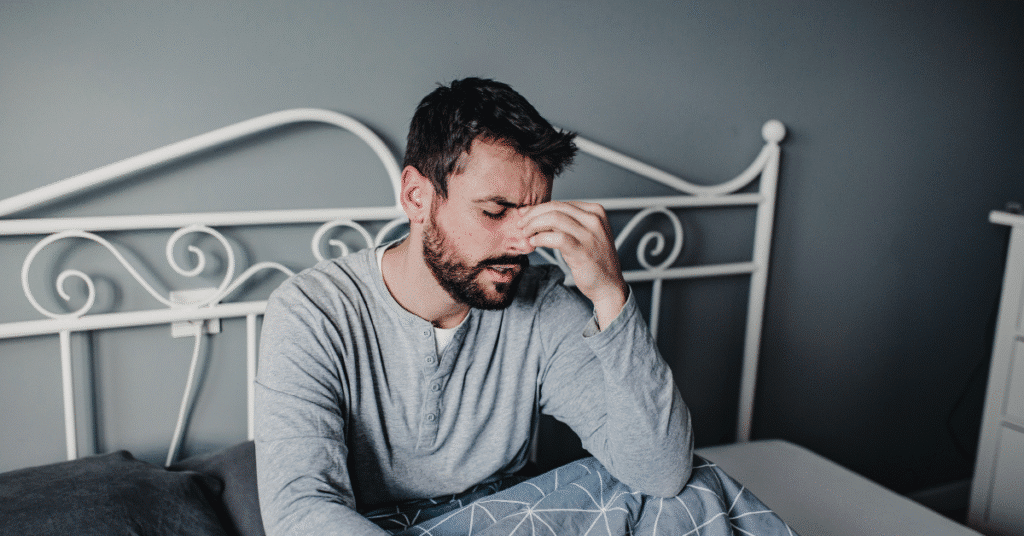You might have felt it after waking up from a night of drinks, the lingering sense of unease, the racing thoughts, or that sinking feeling in your stomach that makes you want to crawl back into bed. That’s hangxiety, the anxiety that often hits after a night of drinking.
Many have experienced it without even realizing it was a thing. Maybe you woke up feeling jittery, filled with guilt over something you said the night before, or worried about the day ahead, all while nursing a hangover.
That uneasy feeling might have just seemed like part of the morning after drinking, but in reality, it’s hangxiety. It’s a mix of the physical effects of alcohol and the mental toll it takes on your mind.
Let’s take a deeper look at hangxiety, why it happens, and how we can manage it moving forward.
What is Hangxiety?
Despite how common hangxiety is, many people don’t talk about it. It is often brushed off as just part of the hangover experience, but the reality is that this combination of anxiety and physical discomfort is something that affects more of us than we realize. Let’s first understand what anxiety feels like.
What is Anxiety?
Anxiety is that feeling of nervousness, worry, or fear that can sometimes feel overwhelming. It’s something most of us have experienced, whether it’s about a big presentation, a difficult conversation, or a personal issue. While occasional anxiety is normal, chronic anxiety can be draining and impact your day-to-day life.
Now, imagine experiencing that intense anxiety, but combined with the physical toll of a hangover. That’s what happens with hangxiety, a mix of the typical hangover symptoms, like headaches, nausea, and fatigue, paired with heightened feelings of worry, nervousness, or even panic.
The effects of alcohol on the brain can leave you feeling mentally drained, causing anxiety to spike in ways that make the morning after drinking feel even worse. It’s a cycle that many people experience but often don’t realize it’s a real phenomenon.
The result? You’re not just recovering from the physical effects of alcohol, but also dealing with an emotional and mental hangover that can be just as tough to shake.
How Does Alcohol Trigger Anxiety the Day After?
When alcohol enters your system, it has a significant impact on both your brain chemistry and your physical state, which is why anxiety can hit so hard the next day.
Here’s how alcohol triggers anxiety:
- Chemical Imbalance: Alcohol disrupts the balance of chemicals in the brain, particularly serotonin and dopamine, which are responsible for regulating mood. When alcohol leaves your system, your brain struggles to readjust, leading to a drop in serotonin levels, which can cause feelings of anxiety and irritability (CDC).
- Dehydration: Alcohol dehydrates the body, which contributes to physical stress. The loss of hydration can lead to headaches, dizziness, and fatigue, all of which contribute to anxiety symptoms the following day.
- Low Blood Sugar: Alcohol also lowers your blood sugar levels, which can cause shakiness and irritability, increasing feelings of anxiety and discomfort.
This combination creates a perfect storm for anxiety, leaving you feeling mentally drained and on edge after a night of drinking.
According to the National Institute on Alcohol Abuse and Alcoholism (NIAAA), these hangover effects can be especially difficult for individuals who regularly drink, as they may experience more frequent episodes of anxiety due to alcohol’s long-term impact on the brain’s chemical balance.
Common Symptoms of Hangxiety
Recognizing these symptoms can help you better understand why you feel the way you do after drinking, and make it easier to manage the aftermath.
Here are some common symptoms to watch out for:
- Increased Heart Rate
- Racing Thoughts
- Guilt and Regret
- Nausea and Dizziness
- Irritability
- Fatigue
- Physical Tension in Muscles
- Difficulty Concentrating
- Feeling Overwhelmed
Who Might Be More Vulnerable to Hangxiety?
Not everyone feels the same way the morning after drinking. While some may experience mild discomfort, others find themselves battling with the aftereffects.
Let’s understand the reasons why this happens:
Genetics
Genetics plays a significant role in how we metabolize alcohol. Which makes some people more sensitive to the chemicals alcohol leaves behind in the body, causing hangover and anxiety.
Mental Health History
If someone has a history of anxiety, depression, or other mental health conditions, they are more likely to experience hangxiety. Alcohol can act as a temporary mood booster, but it can also worsen underlying anxiety or trigger a sense of emotional instability.
Tolerance to Alcohol
Higher tolerance to alcohol, leading to overconsumption, increases the likelihood of hangxiety. This worsens hangover symptoms and increases the chance of experiencing anxiety.
Sleep Quality
Alcohol can interfere with sleep cycles, preventing deep restorative sleep. If someone is drinking regularly or excessively, their body doesn’t get the full rest it needs to recover, which can increase anxiety and stress the following day.
Dehydration and Blood Sugar Levels
Alcohol is a diuretic, leading to dehydration, and can lower blood sugar levels. Some people are more sensitive to these physical effects and may experience more intense hangxiety symptoms like irritability, dizziness, and fatigue.
Social and Environmental Factors
Stress from work, family issues, or social anxiety can amplify hangxiety. If a person is already experiencing external stressors, the aftereffects of drinking can make those feelings much worse.
Drinking Frequency
Chronic drinking can impact serotonin and dopamine levels, which are vital for mood regulation, leading to more severe hangxiety.
Tips to Minimize Hangxiety
Hangxiety can be a tough and overwhelming experience, but there are ways to ease the discomfort and take control of the situation.
Here are some practical tips to help you minimize hangxiety the next time you find yourself dealing with the effects of drinking:
- Drink plenty of water before, during, and after drinking to reduce dehydration and anxiety.
- Have a meal rich in protein and healthy fats to stabilize blood sugar levels.
- Prioritize sleep and relaxation to help your body recover.
- Use deep breathing or meditation to calm your mind.
- Go for a gentle walk or stretching, which helps release endorphins and improve mood.
- Eat nutrient-rich foods like fruits and vegetables to replenish lost vitamins.
- Consider magnesium or B vitamins, which may help replenish the nutrients lost during drinking and support mental health. But check with your doctor first.
- Be kind to yourself and avoid guilt. Recovery is about self-care, not perfection.
- Cutting back on drinking prevents future hangxiety episodes
- Seek professional help by talking to a therapist if hangxiety becomes a recurring issue.
Can Hangxiety Lead to Long-Term Mental Health Effects?
Yes, hangxiety is typically temporary, but it can lead to long-term mental health issues if it becomes a regular pattern. While occasional hangxiety is a normal response to alcohol consumption, frequent episodes of anxiety, especially after drinking, can worsen over time and contribute to chronic anxiety or even depression.
If hangxiety is happening often, it may be a sign of underlying mental health struggles or an unhealthy relationship with alcohol, both of which may require professional support to address.
Managing hangxiety is about understanding your limits, making healthier choices, and seeking help if necessary to prevent it from becoming a long-term issue.
Ready to Break the Cycle of Hangxiety?
If hangxiety is affecting your well-being, it’s time to take control. At Skyline Recovery Center, we offer the support and resources you need to manage anxiety, regain your mental clarity, and build a healthier relationship with alcohol.
Our expert team is here to help you overcome the emotional toll of drinking and guide you toward lasting recovery.
Reach out today and start your journey to a clearer, healthier mind.


